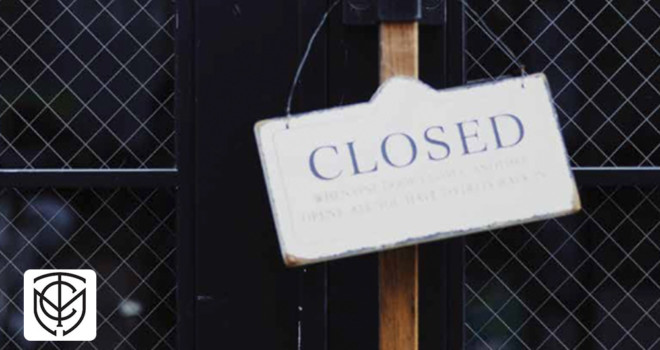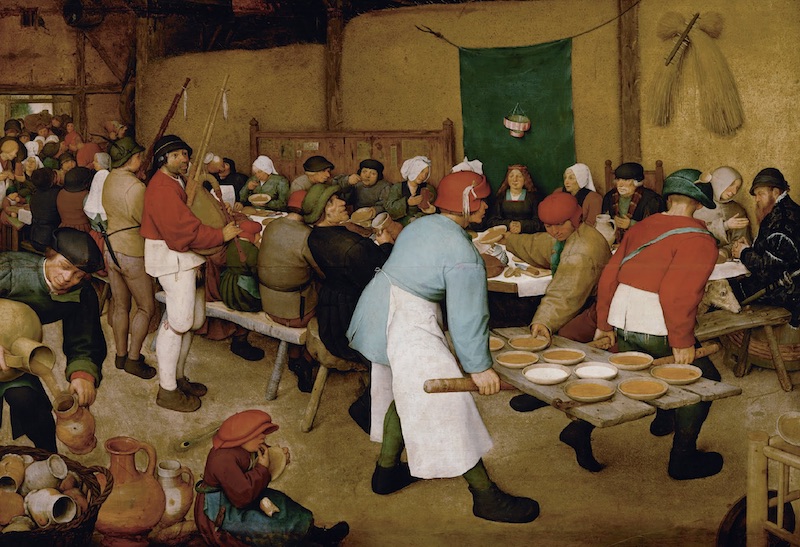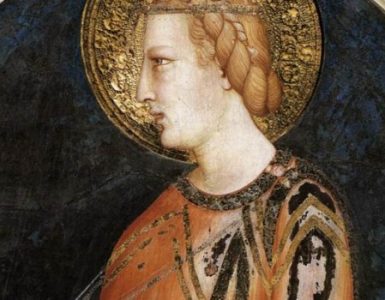The following was originally published in Sword&Spade magazine. You can download the spread from the magazine here.
—
By Terry Rumore
My brother and I, who own a small mechanic shop, had to answer this question after reading a priest friend’s blog on properly reverencing Catholic holy days, and then later being challenged by a close Fraternus Brother.
We always prided ourselves on running a Catholic business, creating a Catholic environment, and treating our employees and customers as brothers and sisters. We also found it easy to take off on New Year’s Day, Memorial Day, 4th of July, Labor Day, Thanksgiving and Christmas; all typical holidays for a business.
But what about solemnities, holy days of obligation and actual Catholic Feast Days?
The Catechism of the Catholic Church, quoting canon law, says the following:
“On Sundays and other holy days of obligation, the faithful are to refrain from engaging in work or activities that hinder the worship owed to God, the joy proper to the Lord’s Day, the performance of the works of mercy, and the appropriate relaxation of mind and body. Family needs or important social service can legitimately excuse from the obligation of Sunday rest. The faithful should see to it that legitimate excuses do not lead to habits prejudicial to religion, family life, and health.”
So my brother and I were faced with a decision. Was the work we were doing on holy days “hindering the worship owed to God, the joy proper to the Lord’s Day, the performance of the works of mercy, and the appropriate relaxation of mind and body”? The answer was “yes,” so we both concluded that the only way for us to properly honor the Catholic holy days was to commit to closing our businesses on those days, and celebrating the feast day festively. And so we did…
August 15, 2019, The Solemnity of the Assumption of Mary, was approaching when we made this decision. I should note that one of our primary businesses is automotive air conditioning, and closing in August was going to hurt. Our festivity was going to require sacrifice. When we looked at the month, we essentially saw that the profit for August would be substantially lower. And even though most of our employees are not Catholic, it would still be right to pay them during the day off like we would for typical holidays of the business world.
We began preparing our customers and employees by explaining the nature of holy days, their significance, and our Church’s requirement to honor them. Despite some quizzical looks and a few questions from customers, the overall response was very favorable. Fallen away Catholics began to reminisce of days long past. Christian men and women expressed a curiosity and even some admiration for this newfound “counter-cultural conviction.” Opportunities for conversation and discussion were born, and we happily obliged.

When the day came, I could not believe how different the solemnity felt compared to past years, when we went to work as we normally would but with Mass squeezed in somewhere to fulfill the obligation. Instead of finding the most convenient Mass that allowed a quick return to the grind, we very intentionally made preparations to pray and rest after Mass. Instead of being distracted by our work and barely thinking about the meaning of the feast day, we were able to properly celebrate it with family and friends, giving the proper honor we owe to God and His Mother. The holy day of obligation didn’t feel like an obligation at all; but rather a very special and significant Catholic feast day. Funny how that seems to work. When we use something the way it is intended to be used, there is freedom and satisfaction in its implementation. My brother and I had decided to set aside conventional wisdom and corporate efficiency for something that the world would call nonproductive and inefficient; yet we received a profit and satisfaction the world does not know and cannot give.
As an extension of our decision, we challenged other families to do the same thing we were doing: take off from work, stay home from school, and celebrate as a true Catholic community should. My brother opened his home to all who wished to join us. Altars were built, prayers were prayed, stories were told, games were played and food was served. A proper feast indeed!
Upon returning to work, we were curious about how the closure would impact our business, but we were pleasantly surprised. Customers had not fled to the competition but instead had left voicemails commending our decision. Others arrived with questions, prompting more worthwhile conversations. Our employees seemed to appreciate the day of rest, and morale was high in the office. It seemed as though Christ and His Mother actually blessed our decision, a blessing that every business needs. And so we made plans for the next holy day, November 1, the Solemnity of All Saints. This time we did so with more confidence, grander plans, and greater conviction that God would bless us.
The Feast of All Saints saw even more families attend, and we were better prepared to properly celebrate. Everyone brought a picture or statue of their favorite Saint. We erected an outdoor tent with a makeshift altar where relics, pictures, and statues were reverenced. Our children played outdoors while moms and dads engaged in the long lost art of conversation. We celebrated with food and drink, laughter and singing. Some gathered around a burning bonfire. Others played instruments. Calling everyone together, we gathered in front of the altar where we prayed a rosary for the intentions of the group, and as I looked over those gathered, I saw something that I would have missed had I been working that day. I saw Catholic men and women being intentionally Catholic in an anti-Catholic world. I thought about those saints who paved the way before us; those saints who weren’t afraid to go against the culture of their time. Saints who valued love over profit, sacrifice over efficiency, and human dignity over productivity. And in case some of you are thinking you can’t possibly do this because you don’t own your own business, I challenge you to re-evaluate how you choose to use your vacation days and personal days moving forward. What a beautiful gesture it would be to Our Heavenly Father to give Him some of those days.
So what happens next? Well, we press on. We’ve already marked our calendars for the upcoming feast days. By now, our employees are anticipating those days, even if they don’t completely understand their meaning. Our customers will find our doors locked and our phones silenced, but perhaps the message will begin to slowly sink in. And when I find myself wavering on my convictions and falling back into old habits, I ask myself this question: Are George Washington, Ulysses S. Grant and Ben Franklin more important than St. Joseph, Our Blessed Mother, and our Savior Jesus Christ? My brother and I, and our families, choose the latter. I challenge you to do the same.
Happiness
by Carl Sandburg
I ASKED the professors who teach the meaning of life to tell me what is happiness.
And I went to famous executives who boss the work of thousands of men.
They all shook their heads and gave me a smile as though I was trying to fool with them
And then one Sunday afternoon I wandered out along the Desplaines river
And I saw a crowd of Hungarians under the trees with their women and children and a keg of beer and an accordion.
The post Can/Should Catholic Businesses Close for Solemnities? Here’s an Example… appeared first on Those Catholic Men.
This article is reprinted with permission from our friends at Those Catholic Men.













